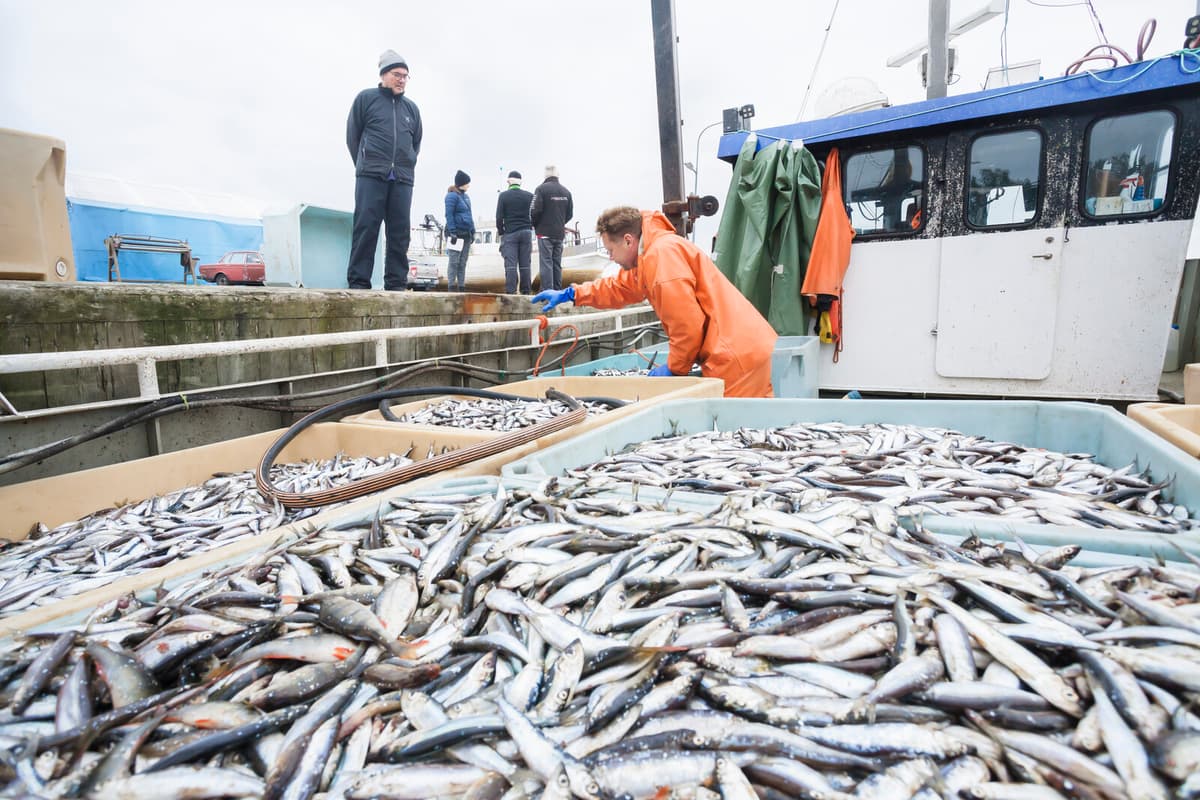The herring quotas are being increased for next year in both the central Baltic Sea and the Gulf of Bothnia, the Bay of Bothnia, and the Gulf of Riga. The sprat quota is being reduced, but not as much as the EU Commission had proposed.
Everything has now been decided by the EU's fisheries ministers.
It's mixed feelings. Sweden's approach to this was to keep the quotas as low as possible. I think we've done that. But Sweden would actually like to go even further, says Rural Affairs Minister Peter Kullgren (KD) to TT and SR Ekot.
Sharp Criticism
However, Sweden had to give in to the majority, as Finland, among others, advocated for increased quotas.
The criticism is sharp, not least from Swedish members of the EU Parliament.
"Regrettably, not more countries understand the serious situation in the Baltic Sea", writes Jessica Polfjärd (M) on X.
Emma Wiesner (C) talks about a "death sentence for the Baltic Sea", Sofie Eriksson (S) about a "pure catastrophe", and Karin Karlsbro (L) about a "sad day".
"Collapse"
Isabella Lövin (MP) wants to see a new long-term plan for the Baltic Sea and believes that Kullgren has failed.
He hasn't managed to reduce the quota by a single percent and yet he's backing this proposal. The cod has already collapsed. The herring and sprat are showing clear signs of also collapsing, she says to TT.
The Centre Party is demanding an explanation from Kullgren in the Riksdag and also that Sweden votes no when the agreement is formally finalized in the EU Council of Ministers.
We don't think it's reasonable for Sweden to pretend everything is fine when the Baltic Sea is collapsing, says Emma Wiesner to TT.
"Easy to be Tough"
Kullgren, however, is calling for "sense in the debate" and instead points a finger at the opposition.
They can get a lot of criticism back: why didn't you do anything during the eight years you were in power? Why didn't you ever manage to reach the International Council for the Exploration of the Sea's minimum advice during that entire time? It's easy to be tough in opposition, but they never took a strong stance and never managed to get to this level, says Kullgren in Luxembourg.
When we were in government, we followed the scientific advice completely when it came to herring, but it has since turned out that the advice was far too high, defends Lövin.
This is what next year's fishing quotas look like for the Baltic Sea (compared to 2024 in percent in parentheses):
Herring in the Gulf of Bothnia and the Bay of Bothnia: 66,466 tons (+21 percent)
Herring in western Baltic Sea: 788 tons, only as bycatch, but with the possibility of small-scale fishing (unchanged)
Herring in central Baltic Sea: 83,881 tons (+108)
Herring in the Gulf of Riga: 41,635 tons (+10)
Cod in eastern Baltic Sea: 430 tons, only as bycatch (-28)
Cod in western Baltic Sea: 266 tons, only as bycatch (-21)
Plaice: 11,313 tons (unchanged)
Sprat: 139,500 tons (-31)
Salmon in the Baltic Sea: 34,787 pieces (-36)
Salmon in the Gulf of Finland: 8,117 pieces (-20)
Source: EU Council of Ministers.






